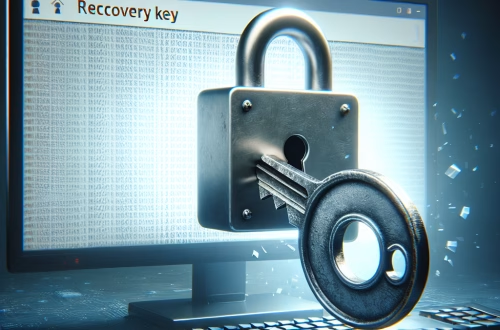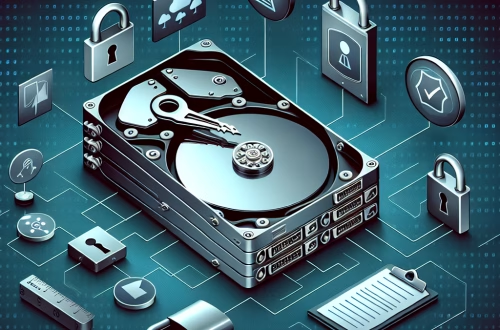bitlocker performance impact windows 11 Explained
BitLocker performance impact on Windows 11 refers to the potential slowdown or resource overhead caused by enabling BitLocker, Microsoft’s full-disk encryption feature. When BitLocker encrypts a drive, it uses cryptographic algorithms to secure data, which can introduce minor delays during system boot, file access, or write operations. Performance impact varies depending on hardware specifications, such as the CPU, TPM (Trusted Platform Module) version, and disk type (HDD vs. SSD). Common scenarios include slower boot times, reduced file transfer speeds, or increased CPU usage during encryption or decryption processes.
What This Means for You
- Immediate Impact: Enabling BitLocker can result in slightly slower system performance, particularly during initial encryption or when accessing heavily encrypted files. Users with older hardware may notice more pronounced delays.
- Data Accessibility & Security: While BitLocker ensures robust data protection, it requires careful management of recovery keys. Losing the recovery key can render data inaccessible, emphasizing the importance of securely storing it via a Microsoft account or external media.
- System Functionality & Recovery: Performance issues can sometimes escalate into boot failures or encryption errors. Troubleshooting may involve using advanced tools like the
manage-bdecommand or accessing the recovery environment. - Future Outlook & Prevention Warning: Proactive measures, such as ensuring hardware compatibility and regularly updating Windows, can mitigate performance impact and prevent potential BitLocker-related issues.
bitlocker performance impact windows 11 Solutions
Solution 1: Optimize Hardware for BitLocker
BitLocker performance heavily depends on hardware. To optimize performance:
- Ensure your system has a TPM 2.0 chip, which is faster and more secure than TPM 1.2.
- Upgrade to an SSD if using an HDD, as SSDs handle encryption operations more efficiently.
- Enable hardware-based encryption (if supported) in your drive’s firmware settings.
Solution 2: Monitor and Manage Encryption Process
BitLocker may impact performance during the initial encryption phase. To manage this:
- Initiate encryption during off-peak hours using the
manage-bde -oncommand. - Monitor progress with the
manage-bde -statuscommand. - Pause encryption temporarily if system performance is severely affected by using
manage-bde -pause.
Solution 3: Configure BitLocker Settings for Performance
Adjust BitLocker settings to balance security and performance:
- Disable encryption of used disk space only (not the entire drive) via the BitLocker setup wizard.
- Use the XTS-AES encryption algorithm, which is faster and more secure compared to older algorithms.
- Turn off BitLocker autounlock for non-system drives to reduce overhead.
Solution 4: Update Windows and Drivers
Outdated system components can exacerbate BitLocker performance issues:
- Ensure Windows 11 is fully updated to the latest version.
- Update TPM firmware and storage drivers from the manufacturer’s website.
- Check for BIOS/UEFI updates that improve encryption performance.
Solution 5: Use Advanced Troubleshooting Commands
If performance issues persist, use advanced BitLocker commands:
- Open Command Prompt as Administrator.
- Use
manage-bde -offto disable BitLocker temporarily and assess system performance. - Re-enable BitLocker with optimized settings using
manage-bde -on.
People Also Ask About:
- Does BitLocker slow down your computer? Yes, but the impact is minimal on modern hardware.
- How long does BitLocker take to encrypt a drive? It depends on drive size and hardware; larger HDDs may take several hours.
- Can I temporarily disable BitLocker? Yes, use
manage-bde -offto disable it temporarily. - Does BitLocker work better on SSDs? Yes, SSDs handle encryption faster and more efficiently than HDDs.
- Is BitLocker worth the performance hit? Yes, for most users, the security benefits outweigh the minor performance impact.
How to Protect Against bitlocker performance impact windows 11
- Regularly back up your BitLocker recovery key to multiple secure locations.
- Ensure your hardware meets BitLocker requirements, including a TPM 2.0 chip and an SSD.
- Adjust BitLocker settings to minimize performance impact, such as encrypting used space only.
- Keep Windows 11, drivers, and firmware updated to ensure optimal performance.
- Monitor system performance during encryption and troubleshoot issues promptly.
Expert Opinion
While BitLocker’s performance impact on Windows 11 is generally minimal, it highlights the importance of balancing encryption with system efficiency. Proactive hardware optimization and careful configuration can ensure both robust security and smooth performance.
Related Key Terms
- BitLocker performance optimization
- TPM 2.0 BitLocker
- SSD encryption vs HDD
- manage-bde commands
- BitLocker settings for speed
- Windows 11 BitLocker troubleshooting
- BitLocker recovery key management
*Featured image sourced by Pixabay.com





